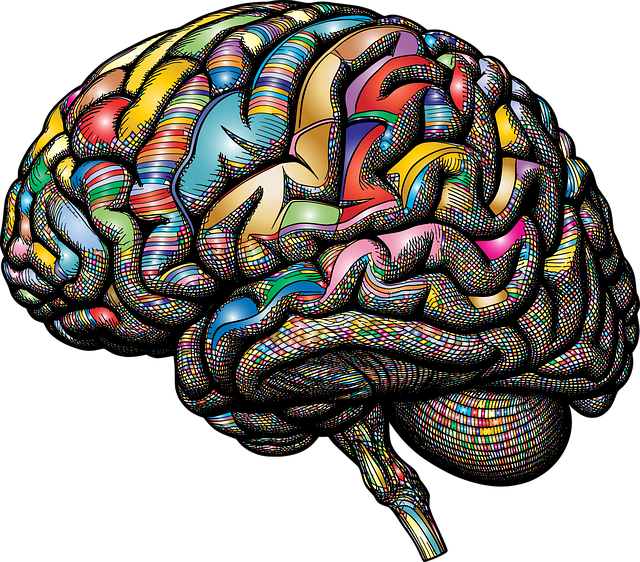Mental health challenges among young adults are on the rise due to academic pressures and social media's comparison culture. Acceptance and Commitment Therapy (ACT) offers a promising solution, combining cognitive-behavioral techniques with mindfulness practices to enhance resilience. By incorporating compassion cultivation and emotion regulation skills, ACT empowers young adults to lead more satisfying lives. Community outreach programs focused on resilience-building further support their mental health and foster a sense of belonging. Effective therapy programs should integrate ACT techniques with tools like Mental Wellness Journaling Exercises and Crisis Intervention Guidance for holistic support. Post-program mentorship, peer groups, and cultural competency training ensure long-term improvements in mental wellness.
Mental health challenges among young adults are on the rise, underscoring the urgent need for comprehensive education programs. This article explores how Acceptance and Commitment Therapy (ACT), a proven effective approach, can be implemented through well-designed educational initiatives. We delve into key considerations for program creation, including curricular content, engagement strategies, and post-program support to promote sustained wellbeing. By embracing ACT principles, these programs empower young adults with tools to thrive in today’s demanding world.
- Understanding Mental Health Challenges Among Young Adults
- Acceptance and Commitment Therapy (ACT): A Comprehensive Framework
- Designing Effective Educational Programs for ACT Implementation
- Promoting Long-Term Wellbeing: Post-Program Support Strategies
Understanding Mental Health Challenges Among Young Adults

Mental health challenges are increasingly prevalent among young adults, a demographic often overlooked in traditional mental health services. This age group faces unique pressures, from academic expectations to social media’s constant comparison culture, which can contribute to rising rates of anxiety, depression, and other mental health disorders. Understanding these challenges is crucial for developing effective interventions.
Acceptance and Commitment Therapy (ACT) has emerged as a promising approach for young adults. ACT combines cognitive-behavioral techniques with mindfulness practices to foster psychological flexibility and resilience. By incorporating compassion cultivation practices and teaching skills to navigate difficult emotions, ACT can empower individuals to lead more fulfilling lives. Additionally, a well-designed community outreach program implementation that includes resilience-building activities can further support young adults in managing their mental health and fostering a sense of belonging.
Acceptance and Commitment Therapy (ACT): A Comprehensive Framework

Acceptance and Commitment Therapy (ACT) offers a comprehensive framework for mental health education programs tailored to young adults. This therapeutic approach emphasizes the importance of acceptance, mindfulness, and commitment to values-driven actions, empowering individuals to manage their emotions and thoughts effectively. ACT encourages clients to develop self-awareness exercises that promote positive thinking and foster a deeper understanding of their internal experiences.
By integrating coping skills development into its core principles, ACT equips young adults with practical tools to navigate life’s challenges. This includes learning to observe negative thoughts without judgment, accepting one’s emotions as they are, and engaging in meaningful actions aligned with personal values. Through these mechanisms, ACT facilitates a profound shift from suppressing or avoiding distressing experiences to embracing them as opportunities for growth and self-discovery.
Designing Effective Educational Programs for ACT Implementation

Effective educational programs for Acceptance and Commitment Therapy (ACT) implementation should be meticulously designed to cater to the unique needs of young adults seeking therapy. The curriculum must offer a balanced approach, combining evidence-based techniques with practical tools that enhance mental wellness. One such strategy involves incorporating compassion cultivation practices into the learning experience. By teaching participants to cultivate self-compassion and kindness towards others, these programs can foster a supportive environment, crucial for engaging in difficult psychological tasks.
Additionally, integrating Mental Wellness Journaling Exercises and Crisis Intervention Guidance can significantly strengthen the program’s impact. Regular journaling activities allow individuals to introspect and track their progress, providing them with valuable insights into their thoughts and emotions. Crisis intervention guidance equips educators with the skills to support participants during intense moments, ensuring a safe and effective learning environment. These components collectively contribute to a holistic ACT implementation, aiming to revolutionize mental health support for young adults.
Promoting Long-Term Wellbeing: Post-Program Support Strategies

After completing a mental health education program, fostering long-term wellbeing requires strategic support. One effective approach is integrating Acceptance and Commitment Therapy (ACT) techniques into post-program strategies. ACT encourages individuals to accept their emotions while committing to values-driven actions, promoting resilience in managing stress and challenges. This can be facilitated through ongoing mentorship or peer support groups, where participants share experiences, offer mutual encouragement, and practice ACT principles together.
Additionally, healthcare provider cultural competency training ensures that post-program support is inclusive and sensitive to diverse backgrounds. Compassion cultivation practices, such as mindfulness exercises and empathy-building activities, further enhance emotional well-being promotion techniques. These strategies collectively contribute to sustained mental health improvements, empowering young adults to navigate life’s twists and turns with growing confidence and self-compassion.
Mental health education programs, centered around Acceptance and Commitment Therapy (ACT), offer a powerful tool to address the mental health challenges prevalent among young adults. By integrating evidence-based practices like ACT, these programs can foster long-term wellbeing. Effective design involves comprehensive curriculum development, engaging delivery methods, and tailored support strategies post-program. Implementing such initiatives ensures that young adults receive the necessary tools to navigate their mental health journeys, ultimately enhancing their overall resilience and quality of life.














